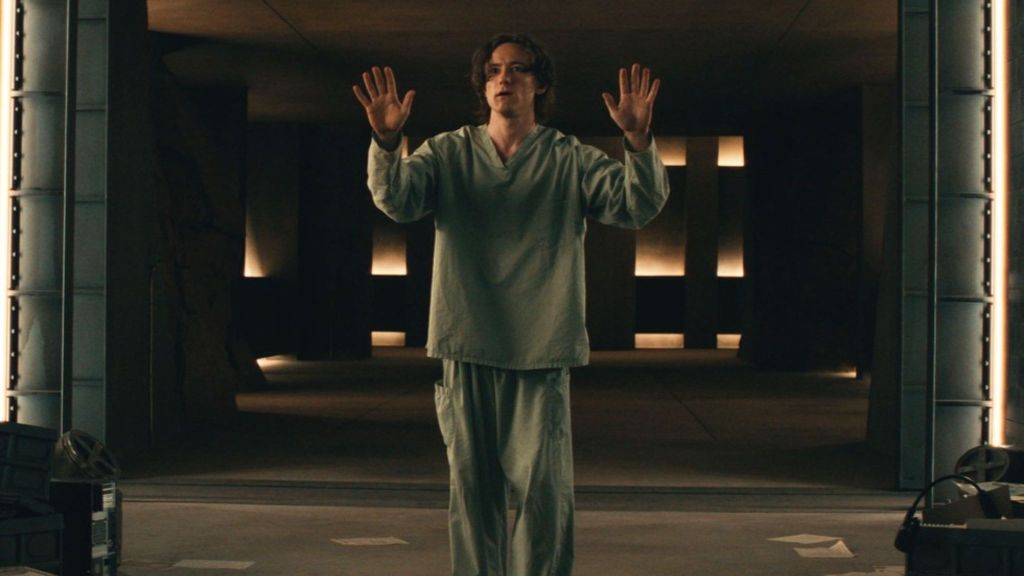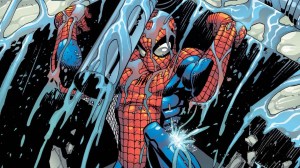17 years after Ed Norton’s Hulk debuted in the MCU, the franchise is basically full of Hulks. The not-so classic Banner-Hulk remains active (and will return for Avengers: Doomsday), but now we’ve also met She-Hulk, Tim Roth’s Abomination and of course Thunderbolt Ross made his bow as Red Hulk in Captain America: Brave New World. And that’s not to mention Banner’s Son Skaar, the weird variants introduced in What If…? or the embarrassment of incel She-Hulk villain HulkKing.
Videos by ComicBook.com
An yet, for all the gamma-powered muscle walking around the MCU these days, we still don’t really have the Hulk anymore. At least, not the version Marvel fans once knew and loved. Somewhere between Avengers: Age of Ultron and Endgame, Marvel decided the most interesting thing about Bruce Banner was figuring out how to stop being the Hulk altogether. That’s how we ended up with “Smart Hulk,” a solution to a character problem that never should have been solved.
And while Hulk’s solution was useful for Endgame, it also quite pointedly closed the book on one of the MCU’s most interesting character arcs. The conflict between man and monster, between vulnerability and rage, between wanting to be left alone and a burning need to protect and belong… it was all why Hulk was one of the best original Avengers. And now that Banner is now seemingly content as a gentle giant genius, the MCU has a story vacuum where that irresistibly entertaining conflict used to be.
And that’s exactly why Thunderbolts* was such an important release for MCU fans who like their struggle to be personified. Because, when you think about it, Lewis Pullman’s Sentry is basically the perfect replacement for the original Hulk’s character arc.
Sentry Is The Secret Hulk Replacement You’ve Been Waiting For

On paper, Sentry is Superman with serious mental health issues: a man granted the power of “a million exploding suns” whose very existence is a paradox. He’s a god-level superhero in the soft outer casing of an emotionally unstable, tormented, and perpetually terrified human. And then, of course, there’s The Void – the dark, corrupting heart of Bob’s psyche that manifests as an apocalyptic, unstoppable force of destruction every time he loses control. That conflict of vulnerability and monstrous dark power sounds awfully familiar doesn’t it?
There is, of course, a chance that Bruce Banner’s savage side returns in the future of the MCU, and we get to see more of the conflict between his urge for calm, and the bubbling rage bursting out of him, all green and violent. But if that doesn’t happen, Sentry might be exactly what you’ve been waiting for. Bob’s arc, in fact, may even go further than Hulk’s ever did. Because Bob’s personality makes the deadly tug of war with the Void all the more poignant. Both characters are cursed by their split existence, but Bob is both a lot nicer and a lot more personally linked to his fellow heroes already.
And of course, Hulk was always still a hero, and the promise that he’d ever go bad was only ever dangled above us as an audience. We’re haunted by the idea of Savage Hulk after seeing a glimpse of him in Age Of Ultron. That was never enough, and even though Hulk was always monstrous, his emotions and his desire to belong despite fear of himself still feels impressively sympathetic. Far more sympathetic, in fact, than a jolly green dork. We’re confronted with the strange idea that in seeking humanity, Banner actually became more alien.
Though the end of Thunderbolts* suggests Bob has things under control, the threat of The Void’s reappearance is part and parcel of who he is. And that internal war, wrapped in a man who could vaporize entire cities on a bad day, is everything the current MCU has been missing since Hulk got all homely and… safe. Excitingly, Sentry isn’t just Hulk 2.0 (or whatever iteration we’re onto now), he’s a horrific upgrade. And hopefully, his popularity might remind us all – and Marvel – why the real Hulk mattered so much.








